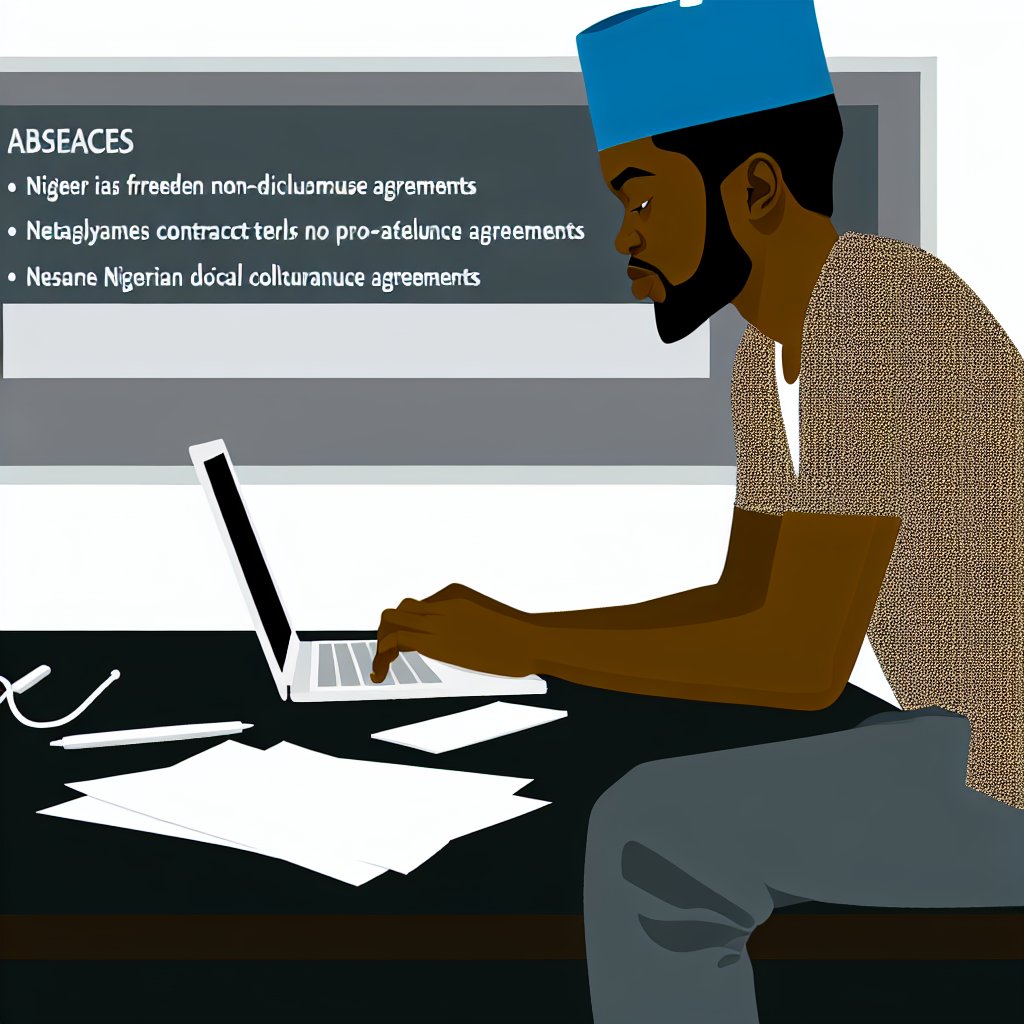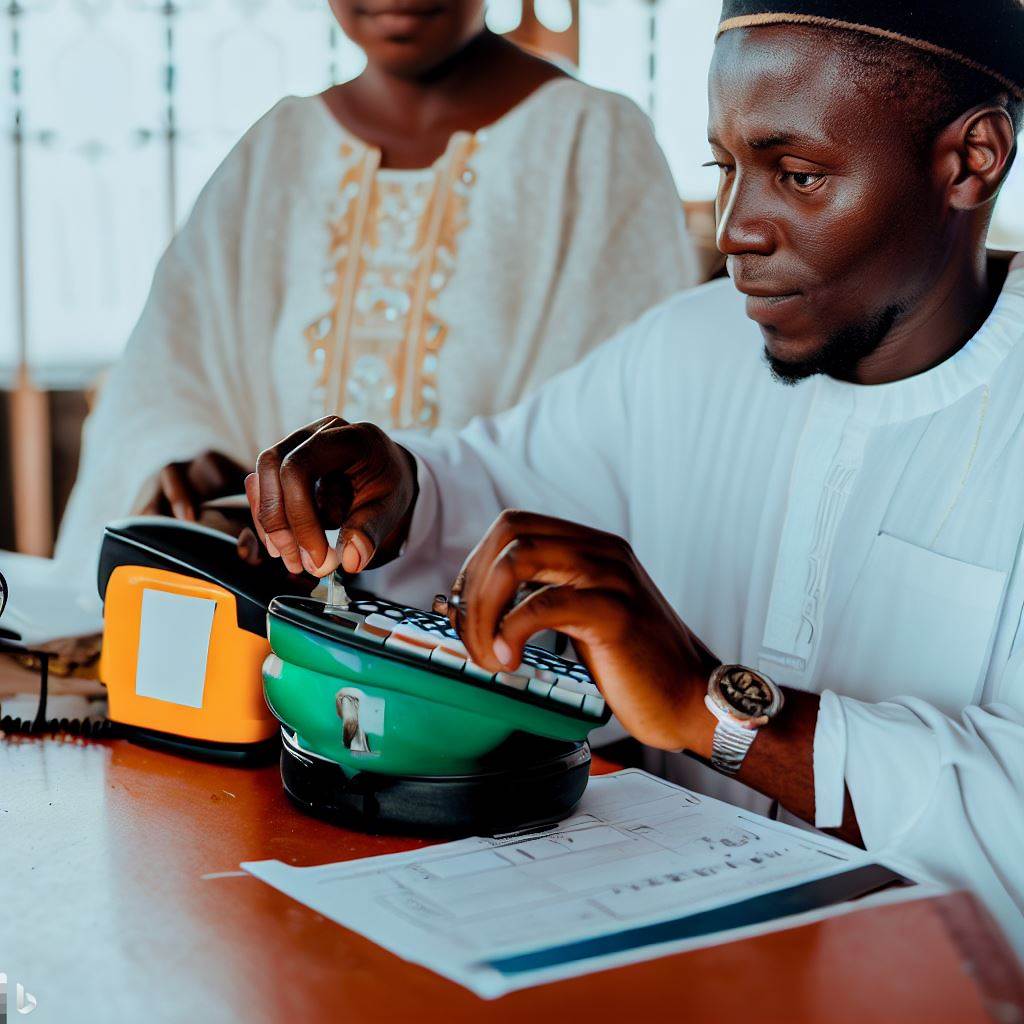Introduction to NDAs and Contracts
Importance for Nigerian Freelancers
Freelancers in Nigeria often collaborate with local brands to deliver services.
These partnerships require clear agreements to protect both parties’ interests.
Non-Disclosure Agreements (NDAs) and contracts serve this essential purpose.
NDAs help safeguard sensitive and proprietary information shared during projects.
Contracts establish the scope, deliverables, payment terms, and deadlines effectively.
Without these documents, freelancers risk misunderstandings and potential legal issues.
Moreover, local brands gain confidence when their collaborators adhere to formal agreements.
Freelancers like Chinedu Ibe and companies such as Abuja Digital Agency frequently use NDAs and contracts.
Consequently, understanding these legal tools empowers freelancers to work professionally.
Additionally, NDAs and contracts promote trust and long-term collaboration.
Key Legal Terms and Clauses in NDAs Relevant to Local Brand Collaborations
Definition of Confidential Information
An NDA clearly defines what information is confidential.
This typically includes business plans.
It also includes marketing strategies.
Product details normally fall under confidentiality.
For instance, Adebayo Oluwole’s marketing agency confidentially shared campaign plans with freelance designers.
Such detailed definitions prevent misunderstandings later.
Freelancers must pay close attention to this clause.
Obligations of the Receiving Party
The NDA outlines the recipient’s duties to protect confidential data.
Mariam Eke, a freelance graphic artist, ensured no client details were disclosed.
The clause demands keeping information secure.
It also limits the use of confidential information.
Moreover, it often forbids sharing details with third parties.
Freelancers should fully understand these responsibilities before signing.
Duration of Confidentiality
The contract specifies how long the confidentiality lasts.
Local brand consultant Emeka Nnamdi signed agreements lasting one to five years.
Sometimes confidentiality continues after the contract ends.
This ensures sensitive information remains protected long term.
Freelancers should clarify this period to manage expectations.
Exclusions from Confidentiality
NDAs state which information is excluded from protection.
For example, publicly known facts are often exempt.
Information obtained independently may also be excluded.
Fisayo Chukwu, working with a Lagos-based fashion label, confirmed exclusions to avoid restrictive clauses.
This section helps freelancers identify safe boundaries for information use.
Consequences of Breach
NDAs define penalties if parties break the agreement.
Penalties may include financial compensation.
Legal action can also be enforced.
For example, Ignatius Eso warned freelancers about lawsuits from breach of confidentiality.
Brands use this clause to enforce trust and serious collaboration.
Freelancers should fully grasp the risks involved in violating terms.
Return or Destruction of Materials
The NDA may require returning or destroying confidential materials after the contract ends.
Chidinma Nwosu, a content creator, returned all campaign files upon project completion.
This clause ensures no sensitive data remains with the freelancer indefinitely.
It promotes good faith and professionalism in collaborations.
Governing Law and Jurisdiction
The agreement states which laws apply to the NDA.
Most Nigerian local brands specify Nigerian law to govern disputes.
This clause protects both parties by clarifying legal processes and venues.
Freelancers working with brands like Lekan & Co. understand the importance of jurisdiction.
Knowing this helps freelancers prepare for potential legal issues locally.
Understanding Confidentiality Obligations and Their Impact on Freelance Work
Defining Confidentiality in Freelance Contracts
Confidentiality obligations protect sensitive information shared during freelance projects.
For instance, a branding agency like Olumide Creative may share proprietary concepts.
Freelancers must keep such information private to maintain trust and professional integrity.
Additionally, confidentiality prevents unauthorized use or disclosure of client data.
Therefore, signing a Non-Disclosure Agreement (NDA) is often necessary before starting work.
Key Elements of NDAs Relevant to Nigerian Freelancers
NDAs typically specify the type of information considered confidential.
This includes business plans, marketing strategies, and client lists.
They also outline the duration for which confidentiality must be maintained.
Sometimes, the obligation extends beyond the project’s completion.
Moreover, NDAs set consequences for breaches, such as legal penalties or contract termination.
How Confidentiality Affects Daily Freelance Activities
Confidentiality limits sharing project details with third parties, including peers.
For example, Chidiebere, a freelance graphic designer, cannot reveal client logos before approval.
This requirement encourages discretion and careful communication.
Furthermore, freelancers must secure client files and communications properly.
Ignoring these duties can damage a freelancer’s reputation and future opportunities.
Balancing Confidentiality with Portfolio Building
Many freelancers hesitate to showcase work due to confidentiality restrictions.
Nonetheless, Omar Digital Marketing advises negotiating permission to feature sanitized versions.
Clients may allow sharing work without revealing sensitive details or branding specifics.
This balance helps freelancers grow their portfolios while respecting agreements.
Therefore, clarify these terms early during contract discussions.
Protecting Freelancers’ Interests within NDAs
Freelancers should ensure NDAs are fair and reasonable before signing.
Legal counsel can help review terms related to scope and duration of confidentiality.
For example, indefinite confidentiality periods can be burdensome and limit career growth.
Also, freelancers must confirm that obligations do not unfairly restrict their creativity.
Open communication with clients like Lagos Media House fosters mutual understanding.
Find Out More: How to Find Affordable Legal Services as a Nigerian Freelancer
How to Review and Negotiate Contract Terms with Nigerian Brands
Carefully Examine Each Clause
Begin by reading the entire contract thoroughly.
Focus on key clauses like payment schedules, deliverables, and deadlines.
Also, study clauses related to intellectual property and confidentiality.
Highlight any terms that seem unclear or unfavorable.
Consult trusted sources or legal advisors to clarify complex terms.
Verify Payment Terms and Conditions
Confirm the payment amount and currency to avoid surprises.
Check the payment schedule and method specified in the contract.
Ensure there are no ambiguous terms on late or partial payments.
Negotiate for clear invoicing procedures to streamline payments.
Assess Rights and Obligations
Understand your responsibilities and project scope thoroughly.
Review how intellectual property rights are assigned or shared.
Look for clauses that limit your ability to work with other brands.
Seek to adjust terms that unduly restrict your freelance flexibility.
Prepare for Discussions with Brand Representatives
List all points that need clarification or amendment before negotiation.
Approach discussions professionally and with a collaborative mindset.
Use clear and respectful language when proposing changes.
Provide reasons for each requested amendment to strengthen your case.
Negotiate Deliverables and Timelines
Ensure the contract reflects realistic delivery dates based on your workload.
Discuss the possibility of phased deliveries if applicable.
Agree on revisions or feedback processes to avoid misunderstandings.
Consider penalties or remedies if deadlines are not met by either party.
Understand Termination and Dispute Resolution Procedures
Check how either party can terminate the agreement and under what conditions.
Look for dispute resolution methods that are fair and efficient.
Negotiate to include mediation or arbitration before legal actions.
Clarify liabilities and indemnities to protect yourself from undue risks.
Confirm Confidentiality and Non-Disclosure Terms
Review how confidential information must be handled during and after the contract.
Ensure the non-disclosure obligations are reasonable in scope and duration.
Negotiate modifications if terms restrict your future work unfairly.
Seek confirmation on data ownership and usage rights.
Finalize the Agreement with Clear Documentation
Summarize all agreed changes in writing before signing.
Request a signed copy of the final contract for your records.
Maintain organized files of all communications and versions of the contract.
Regularly revisit contract terms in case project scope evolves over time.
Find Out More: Avoiding Legal Risks When Working with International Clients
Common Challenges Nigerian Freelancers Face in Contract Agreements
Lack of Clear Terms and Conditions
Nigerian freelancers often encounter contracts with vague or ambiguous terms.
This lack of clarity leads to misunderstandings between freelancers and local brands.
Payment deadlines and project scope are frequently undefined.
Freelancers might deliver work without certainty of timely payment.
It is crucial to insist on clearly defined contract terms before starting work.
Inadequate Protection of Intellectual Property Rights
Many contracts neglect to specify intellectual property ownership.
This oversight exposes freelancers to unauthorized use of their creative work.
Brands sometimes claim rights over freelancers’ original ideas unfairly.
Nigerian freelancers must ensure IP clauses protect their creations.
Including terms on usage limits can prevent future disputes.
Delayed or Unreliable Payments
Payment delays remain a significant problem for Nigerian freelancers dealing with local companies.
Some brands extend payment schedules without prior notification or agreement.
Freelancers face financial strain that affects their livelihoods.
Contracts should include strict and enforceable payment timelines.
Specifying penalties for late payment helps encourage prompt settlements.
Unbalanced Liability and Responsibility Clauses
Contracts frequently place disproportionate liability on freelancers.
Freelancers may be held accountable for delays caused by the brand.
This imbalance discourages freelancers from working with certain local businesses.
Contracts must fairly distribute responsibilities between both parties.
Nigerian freelancers should negotiate equitable liability terms before agreement.
Limited Access to Legal Support and Contract Review
Many freelancers lack resources to access professional legal advice.
They sign contracts without understanding complex legal jargon.
This situation leads to unfavorable agreements with local brands.
Organizations like Freelancers Hub Nigeria provide contract review assistance.
Seeking expert legal support strengthens freelancers’ negotiating positions.
Absence of Dispute Resolution Mechanisms
Several contracts do not outline clear processes for resolving disagreements.
This absence causes prolonged conflicts that affect project completion.
Unresolved disputes damage professional relationships between freelancers and brands.
Including alternative dispute resolution clauses benefits both parties.
Mediation or arbitration can offer faster, less costly solutions.
Pressure to Accept Unreasonable Terms
Local brands sometimes pressure freelancers to agree to unfair contract conditions.
Nigerian freelancers may feel compelled to accept due to limited opportunities.
This imbalance undermines freelancers’ bargaining power and job satisfaction.
Freelancers should learn to identify and reject exploitative clauses confidently.
Building collective awareness through freelancer groups can empower fair negotiations.
Uncover the Details: The Freelancer’s Guide to Protecting Intellectual Property in Nigeria
Protecting Intellectual Property Rights in Freelance Contracts
Understanding Intellectual Property in Freelance Work
Intellectual property (IP) refers to creations such as designs, writings, and inventions.
Freelancers often produce valuable IP when working for local brands in Nigeria.
Therefore, safeguarding these rights ensures fair use and compensation.
Misunderstandings about IP can lead to costly disputes between freelancers and clients.
Consequently, clearly addressing IP in contracts protects both parties involved.
Key Clauses to Include in Freelance Contracts
Properly written contracts specify who owns the intellectual property created.
Freelancers should insist on clauses that define ownership and usage rights.
For example, Tunde Adeyemi, a graphic designer, secures ownership of his original logos.
Clients like Abuja Style Studio clearly state usage limits to avoid infringement.
Besides ownership, confidentiality provisions prevent unauthorized sharing of ideas.
Licensing terms also outline how clients may use the freelancer’s work legally.
A well-drafted contract reduces risks of IP theft and unauthorized reproduction.
Steps for Nigerian Freelancers to Protect Their Intellectual Property
Firstly, always use a formal written contract before starting any project.
Secondly, consult legal experts familiar with Nigerian IP law for contract review.
If necessary, register your works with the Nigerian Copyright Commission for added protection.
Additionally, keep records of your work development process as proof of ownership.
Communicate openly with clients about IP expectations before project commencement.
Finally, monitor how your designs or content are used after project delivery.
Benefits of Protecting Intellectual Property Rights
Protecting IP enhances a freelancer’s professional reputation and trustworthiness.
It empowers creatives like Amara Eze to negotiate fair compensation and royalties.
Moreover, it encourages innovation by securing the fruits of one’s labor.
Clients also benefit by receiving clear terms that prevent future legal conflicts.
Thus, clear IP protection promotes healthy collaborations in Nigeria’s freelance ecosystem.
Uncover the Details: Navigating NDAs and Confidentiality Clauses as a Nigerian Freelancer

Steps to Take When a Contract or NDA is Breached by a Local Brand
Recognize the Breach
First, identify the specific terms the brand has violated.
Review the contract or NDA thoroughly to understand the breach nature.
Consult with a legal expert specializing in Nigerian contract law if necessary.
Keep detailed records of communications and any evidence related to the breach.
Communicate with the Brand
Reach out to the brand’s representative in a professional manner.
Clearly explain the breach and its impact on your work or business.
Request an immediate response or corrective action from the brand.
Use written communication like email to maintain an official record.
Attempt Amicable Resolution
- Propose solutions to resolve the breach without escalating the conflict.
- Negotiate new terms or remedies that protect your interests.
- Consider mediation or involving a neutral third party if discussions stall.
- Document all agreements reached during this resolution phase carefully.
Pursue Legal Action if Necessary
If the brand ignores your requests, prepare to enforce your rights legally.
Engage a reputable Nigerian attorney with experience in contract disputes.
File a formal complaint with the appropriate regulatory bodies or courts.
Gather all relevant documentation, including contracts, emails, and payment proofs.
Stay informed about Nigerian laws governing contracts and NDAs.
Protect Your Work and Reputation
Secure copies of all original work and correspondence with the brand.
Inform business partners or clients about the breach professionally if needed.
Maintain your professionalism to preserve your reputation in the freelancing community.
Learn from the experience by improving future contract terms and safeguards.
The Role of Nigerian Laws and Regulations Governing Freelance Contracts
Legal Framework for Freelance Agreements
Nigeria’s legal system provides a solid framework for governing freelance contracts.
The Nigerian Contract Law, based on common law principles, applies to these agreements.
The Contracts Act 1960 governs the formation and enforcement of contracts.
Freelancers and local brands must understand this legislation to protect their interests.
Contracts must include offer, acceptance, and consideration to be legally binding.
Moreover, both parties should have the capacity to contract under Nigerian law.
Contracts with minors or mentally incapacitated persons may be void.
This ensures all freelance agreements are valid and enforceable in Nigerian courts.
Confidentiality and Non-Disclosure Agreements
Nigerian law recognises the importance of confidentiality in freelance contracts.
Brands often require freelancers to sign Non-Disclosure Agreements (NDAs) to protect sensitive information.
NDAs are enforceable under Nigerian contract law when they comply with legal requirements.
These agreements restrict freelancers from sharing proprietary data with third parties.
They specify the duration and scope of confidentiality obligations.
Freelancers should carefully review NDAs before signing.
Failure to comply with NDAs can lead to legal penalties or loss of business relationships.
Understanding NDAs safeguards both the freelancer and the brand’s interests.
Intellectual Property Rights in Freelance Work
Nigerian intellectual property law plays a crucial role in freelance contracts.
Brands and freelancers must clarify ownership of work products created during projects.
The Nigerian Copyright Act protects original works created by freelancers.
Contracts usually specify whether intellectual property rights transfer to the brand or remain with the freelancer.
Clear terms prevent disputes over copyrights, trademarks, and designs.
Freelancers should negotiate these rights before signing agreements.
Understanding intellectual property laws ensures proper usage and protection of creative works.
Local brands benefit from legally recognised rights to the deliverables.
Dispute Resolution Mechanisms
Disputes may arise between freelancers and brands during or after contract performance.
Nigerian laws encourage parties to include dispute resolution clauses in their contracts.
Common methods include negotiation, mediation, arbitration, and litigation.
Mediation and arbitration offer faster, cost-effective alternatives to court proceedings.
The Arbitration and Conciliation Act governs arbitration processes in Nigeria.
Including these clauses helps manage conflicts efficiently and professionally.
Freelancers like Akinwale Ibrahim often benefit from mediation to settle disagreements amicably.
Having clear dispute resolution terms reduces legal risks and preserves business relationships.
Compliance with Tax and Regulatory Requirements
Nigerian freelancers must comply with tax laws relevant to contract earnings.
The Federal Inland Revenue Service (FIRS) mandates tax payments from freelance income.
Contracts should specify responsibilities regarding tax deductions and filings.
Ignoring tax obligations can result in penalties and legal issues.
Freelancers should be aware of the Companies and Allied Matters Act when working with incorporated brands.
Some freelance contracts require registration with regulatory bodies depending on industry sectors.
For example, media freelancers often register with the Nigerian Press Council.
Understanding regulatory requirements ensures lawful and smooth freelance operations.
Tips for Drafting Clear and Fair NDAs for Freelancers and Brands
Defining the Scope of Confidentiality Clearly
Start by specifying what information must remain confidential.
Olumide Media explicitly defines client data and project details.
Also, clarify any exclusions from confidentiality protections.
This clarity prevents misunderstandings between freelance marketers and local brands.
Use Precise and Simple Language
Write NDAs in straightforward language to avoid confusion.
This approach helps freelancers like Adaobi and brands such as Lagos Style Hub understand their obligations.
Avoid legal jargon that may intimidate or mislead parties.
Consequently, both sides can easily comply with the agreement’s terms.
Set Reasonable Timeframes
Specify how long confidentiality must be maintained after contract completion.
Brands like Kalu Fabrics often request one-year confidentiality periods.
Freelancers should negotiate timeframes that align with their project duration.
Fair limits build trust and encourage long-term collaboration.
Include Mutual Obligations
Ensure NDAs require both parties to protect confidential information.
This balances responsibilities between designers such as Chima Creations and content writers like Ifeoma.
Mutual obligations foster respect and clear accountability.
Thus, NDAs become powerful tools for safeguarding business interests on both sides.
Address Legal Jurisdiction and Dispute Resolution
Specify the legal jurisdiction governing the NDA, typically Nigerian law.
Agreements for Ajayi Consult include Lagos courts as the venue for disputes.
Also, suggest dispute resolution methods like mediation or arbitration.
This provision limits costly legal battles and promotes swift conflict resolution.
Encouraging Regular NDA Reviews and Updates
Encourage freelancers and brands to revisit their NDAs periodically.
Oyinkan Creative updates contracts yearly to reflect market changes.
Regular reviews ensure terms remain relevant and compliant with evolving laws.
Ongoing updates protect all parties and enhance contract effectiveness.
Resources and Legal Support Available for Nigerian Freelancers
Legal Assistance for Contract Reviews
Nigerian freelancers often face challenges understanding contracts.
Fortunately, several legal professionals offer contract review services.
For example, Bamidele Adeyemi, a Lagos-based legal consultant, specializes in freelance contracts.
Similarly, the law firm Adekoya & Sons provides affordable contract advice for creatives.
These services ensure freelancers fully understand their obligations and rights before signing.
Moreover, some platforms like LawPadi provide free legal articles and basic advice tailored for freelancers.
Online Platforms Offering Document Templates
Freelancers can also access standard NDA and contract templates online.
Platforms such as DocsHub Nigeria curate legal templates suitable for local business practices.
Additionally, FreelanceNaija offers downloadable contracts and NDAs adapted for Nigerian freelancers.
Using these templates helps freelancers draft agreements faster and with more confidence.
Nevertheless, customizing the documents to suit specific projects remains essential.
Subsequently, freelancers should seek legal advice to review any customized agreements.
Freelance Associations and Networks
Joining Nigerian freelance communities provides valuable legal support opportunities.
The Nigerian Freelancers Hub frequently organizes workshops on contracts and intellectual property.
Similarly, the Lagos Creative Collective connects freelancers with experienced legal advisors.
These groups offer webinars and Q&A sessions addressing common contract concerns.
Additionally, peer networks can share recommendations for trustworthy lawyers or consultants.
Therefore, becoming part of these communities strengthens freelancers’ legal knowledge and confidence.
Government and Institutional Support for Freelancers
The Nigerian government has initiatives supporting small business legal needs.
The Small and Medium Enterprises Development Agency of Nigeria provides free legal clinics periodically.
The Nigerian Copyright Commission also educates freelancers on protecting their intellectual property.
Furthermore, business development centers in cities like Abuja and Port Harcourt offer legal assistance.
Many of these services emphasize contract law and protecting freelance work.
Consequently, freelancers should explore these opportunities to access cost-effective legal support.
Additional Resources
Hire the best Contract Law Lawyers & Legal Professionals in Nigeria




